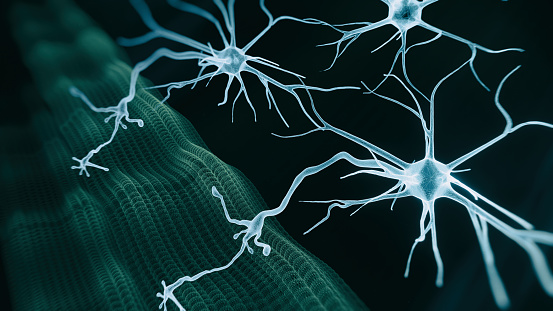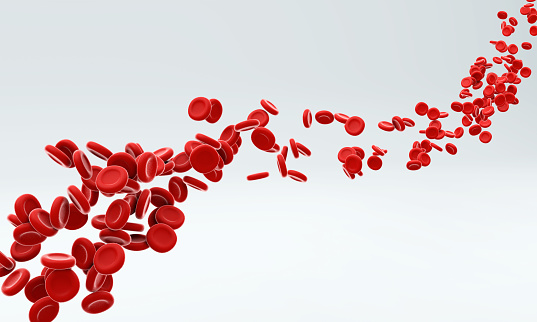What is B-12
Vitamin B-12, also called cobalamin, is an essential nutrient part of the B vitamin class. All B vitamins function as enzymes to help the body produce energy by converting carbohydrates into glucose, the body’s main fuel. They also utilize fats and protein to build and maintain healthy skin, hair, and eye tissues.
The body cannot make B-12 on its own; we need to intake it from either our diet or supplements. Although it’s a water-soluble vitamin, it can be stored in the liver for years, a trait typically only observed in fat-soluble vitamins (vitamin A, D, E, and K).
B-12 sources

B-12 is different from the other B vitamins in that it doesn't come from plant sources. It’s actually made by bacteria in the gut of animals, which is why it’s mainly found in animal products like liver, fish, eggs, and dairy.
B-12 functions
While all eight B vitamins are equally important, B-12 has gained popularity in recent years as it’s thought to be an important nutrient for improved mental health. Besides helping with food utilization, it supports the nervous system, red blood cell formation, and DNA and neurotransmitter synthesis.
B-12 and the nervous system

B-12 is called a “neurotropic” vitamin because it has cognitive function affecting properties. It is a coenzyme in many of the processes that repair the health of the nervous system.
Myelin sheath synthesis
One of the main roles of B-12 is it synthesizes myelin.
Myelin sheath is the conductive and insulating layer around the axon, the part of the neuron that carries electrical impulses away to other nerve cells. The myelin surrounding the axon is similar to insulation around electrical wires. It also increases the speed that signals are transmitted from nerve to nerve. Healthy myelin is essential; several disorders stem from abnormal myelin sheath, the most notorious being multiple sclerosis (MS).
Oligodendrocytes
B-12 improves myelin by synthesizing DNA to make myelin-producing oligodendrocytes. Oligodendrocytes are the cells of the central nervous system that are responsible for making myelin.
This allows for the regeneration of nerves after an injury [1]. Without B-12, the reactions necessary to make DNA responsible for orchestrating myelin synthesis will not occur which results in demyelination.
Homocysteine regulation
Low levels of B-12 increase levels of homocysteine in the blood.
Homocysteine is an amino acid used to create other chemicals your body needs, like methionine. Homocysteine is converted to methionine by vitamin B-12 and folic acid and ideally leaves very little homocysteine behind after the reaction is completed.
Elevated homocysteine levels, also called hyper-homocysteinemia, usually indicates a vitamin deficiency in either B-12, folate, or B6. Elevated levels of this compound can cause oxidative stress, DNA damage, and cell death and is linked to inflammation, dementia, autoimmune disease, cardiovascular disease, and depression.
Red blood cell formation

Another main function of vitamin B-12 is being involved in forming red blood cells.
Erythropoiesis
A process called erythropoiesis is when new erythrocytes, or red blood cells, are produced. This process occurs daily as about 1% of older erythrocytes are destroyed each day and need to be replaced with new ones.
Vitamin B12, along with folate and iron, have to be present for this process to occur. Erythroblasts, the immature red blood cells, require folate and vitamin B12 to grow. Without folate or vitamin B12, DNA synthesis is impaired and results in erythroblast apoptosis, or cell death. This can cause anemia; not from lack of iron but from ineffective erythropoiesis.
Anemia
This is called vitamin B-12 deficiency anemia, or megaloblastic anemia [3]. The lack of healthy red blood cells in circulation causes reduced oxygen levels in the body. This causes the weakness and fatigue commonly associated with B-12 deficiency.
Pancytopenia
B-12 deficiency can also cause pancytopenia, a rare condition where there are low amounts of red blood cells, white blood cells, and platelets in the blood.
This can cause fatigue, weakness, dizziness, fast heartbeat, easy bruising, pale skin, or abnormal bleeding. Most cases can be resolved with vitamin deficiency correction, however more serious cases require bone marrow medications and you should consult with wellness professionals if you’re experiencing these symptoms.
Vitamin B-12 and gut function
B-12 deficiency can also affect gut function.
A lack of red blood cells can cause insufficient oxygen levels in the gut and may cause diarrhea, nausea, constipation, bloating, and other gastrointestinal symptoms.
DNA and neurotransmitter synthesis
B-12 plays a role in DNA and neurotransmitter synthesis.
Structural stability in DNA synthesis
Vitamin B-12 is important for DNA synthesis. It ensures structural stability in the centromeres and sub-telomeres, which are regions in the chromosomes where DNA synthesis occurs.
Neurotransmitter synthesis
It also acts as a co-factor in the synthesis of neurotransmitters like serotonin and dopamine. Neurotransmitter under-production affects mood, concentration, sleep, and emotions. In rare cases, severe B-12 deficiency can lead to psychiatric disorders. Researchers discovered this when treating a woman with obsessive-compulsive disorder. They found B-12 deficiency and iron-deficiency to be at the root of it [8].
Deficiencies
B-12 deficiency is common, especially in elderly populations and vegans/vegetarians.
Elderly populations
Vitamin B-12 deficiency is common in the elderly, with about 30-40% of the elderly population having insufficient levels [1]. This is often due to malabsorption issues as the bodies ability to absorb B-12 from food declines with age.
Vegetarians and vegan populations
Since B-12 is mostly consumed through animal foods, vegans and vegetarian also are at risk of deficiency.
Signs of deficiency
Some symptoms of a deficiency are fatigue, nerve damage, digestive disorders, and cognitive problems like depression, anxiety, or memory issues [2].
Causes of B-12 deficiency
The cause of a B-12 deficiency can be due to three different factors:
- Nutritional deficiency (not consuming enough of it in the diet)
- Malabsorption issues
- Other gastrointestinal issues, like IBS (irritable bowel syndrome) or leaky gut [5].
This is why testing blood levels of B-12 is important because you can eat plenty of B-12 but still be deficient in it due to poor absorption.
Poor absorption causes
Poor absorption can have two causes: a lack of hydrochloric acid in the stomach or a lack of intrinsic factor.
Hydrochloric acid is your stomach acid responsible for breaking down food. Intrinsic factor is a protein made by cells in the stomach lining that helps the intestines absorb B-12.
Without adequate amounts of hydrochloric acid (HCl), B-12 is not released from the dietary proteins and is not available for binding with the intrinsic factor. And since the intrinsic factor is responsible for absorption, the vitamin cannot be absorbed without adequate amounts of it present [7].
Ways to get B-12
The Recommended Dietary Allowances (RDA) of vitamin B-12 is about 2.4 μg/day [6]. That being said, due to genetic makeup and diet, individuals should personalize their B-12 levels to their unique needs when accessible. There are currently no known toxic levels of Vitamin B12. There are multiple ways to ensure you’re getting adequate amounts of B-12 in, with the most common being through food or supplements.
Food sources
B-12 is found in a variety of animal products. The highest levels of B-12 are found in animal organ meats, like liver and kidney. Just one serving of liver contains about 3000% of the recommended intake of B-12.
More commonly eaten foods like clams, tuna, beef, salmon, eggs, and sardines are also high in B-12. The only non-animal products that contain B-12 are fortified foods, like breakfast cereals and milk.
Supplements
There are many different forms of B-12 supplements out there: pills, liquid forms, intravenous shots. and microbeads. Pills and mI aicrobeads are a great way to get daily B-12 in, especially if you follow a vegetarian or vegan diet.
For those with low B-12 levels even after getting adequate amounts in from their diet, it could point to an absorption issue as discussed above.
For poor absorption, an intravenous shot can be the best option as it boosts B-12 levels for 2-3 months at a time and ensures the full amount goes directly into the blood stream.
Since B-12 is stored in the body and is found in commonly eaten foods, a supplement is not always necessary.
Rootine’s blood vitamin test can help check this. It can measure your vitamin B9, B12, and homocysteine levels (as well as vitamin D and hsCRP). You can use the results to guide how much of each vitamin your body needs.
Rootine produces a high-quality B-12 supplement that’s been 3rd party tested and releases slowly over 6+ hours to maximizes absorption. Order a blood vitamin test today so you can found out exactly what your body needs.
Key takeaways
- B-12 is essential in red blood cell formation and proper neurotransmitter and DNA synthesis
- It also helps regulate the amount of homocysteine in the blood- too high of homocysteine is associated with many health conditions like heart disease and dementia
- B-12 is found in many animal foods and fortified foods, making it easy to get enough of in your diet
- However, poor absorption of B-12 is common and could lead to a deficiency even if you're eating enough B-12
Sources
1. Calderón-Ospina, C. A., & Nava-Mesa, M. O. (2020, January). B vitamins in the nervous system: Current knowledge of the biochemical modes of action and synergies of thiamine, pyridoxine, and Cobalamin. CNS neuroscience & therapeutics. Retrieved June 2, 2022, from https://www.ncbi.nlm.nih.gov/pmc/articles/PMC6930825/
2. Link, R. (2020, May 12). Methylcobalamin vs. Cyanocobalamin. Healthline. Retrieved June 2, 2022, from https://www.healthline.com/nutrition/methylcobalamin-vs-cyanocobalamin
3. MJ, K. (n.d.). New insights into erythropoiesis: The roles of folate, Vitamin B12, and iron. Annual review of nutrition. Retrieved June 2, 2022, from https://pubmed.ncbi.nlm.nih.gov/15189115/
4. Kubala, J. (2021, December 22). 9 signs and symptoms of vitamin B12 deficiency. Healthline. Retrieved June 2, 2022, from https://www.healthline.com/nutrition/vitamin-b12-deficiency-symptoms
5. Robert, C., & Brown, D. L. (2003, March 1). Vitamin B12 deficiency. American Family Physician. Retrieved June 2, 2022, from https://www.aafp.org/pubs/afp/issues/2003/0301/p979.html?mod=article_inline
6. Karapiperi, K., Gousis, C., & Papaioan, P. (n.d.). The role of vitamin B12 in DNA modulation mechanisms. Frontiers. Retrieved June 2, 2022, from https://www.frontiersin.org/10.3389/conf.fphar.2010.60.00140/event_abstract
7. DNAFit. (2019, January 10). Everything you need to know about vitamin B12. DNAFit. Retrieved June 2, 2022, from https://www.dnafit.com/advice/nutrition/everything-you-need-to-know-about-vitamin-b12.asp
8. Valizadeh, M., & Valizadeh, N. (2011, July). Obsessive compulsive disorder as early manifestation of B12 deficiency. Indian journal of psychological medicine. Retrieved June 2, 2022, from https://www.ncbi.nlm.nih.gov/pmc/articles/PMC3271502/



